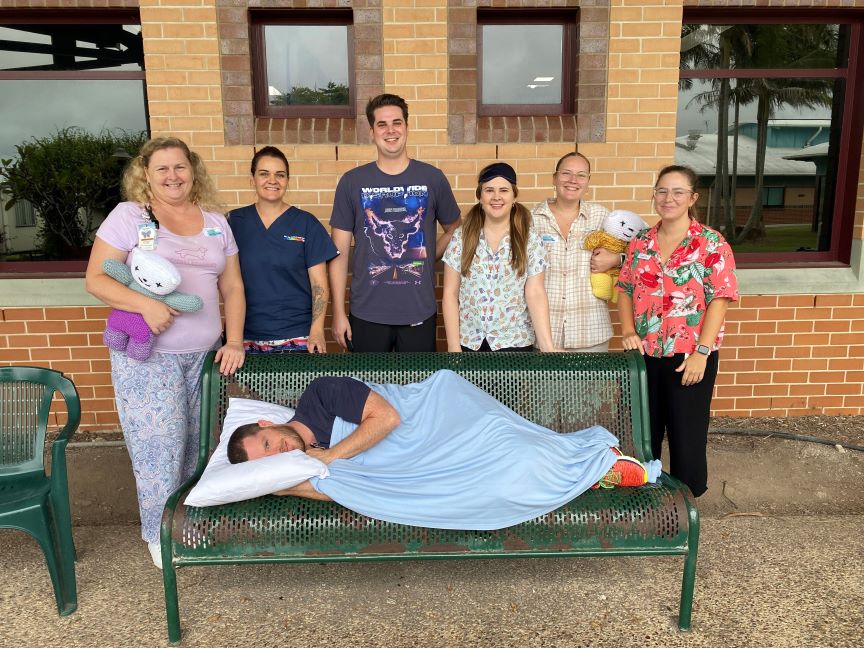
Frailty, an encompassing vulnerability due to weakness and poor health, it is not age specific and results in a decreased ability to cope and participate in activities of daily living.
Deconditioning can occur at any time but is a significant concern following hospital stays. It results in reduced energy, poor balance, muscle loss, and an increased risk of falls. Astonishingly, one week of deconditioning necessitates four weeks of reconditioning. The consequences extend to pressure injuries from remaining immobile & having extended periods of bed rest & sitting, reduced bone density, fractures, chest infections, and mental health issues.
Recognising this, Wide Bay Hospital and Health Service (WBHHS) launched a dedicated Frailty Awareness Month, spearheaded by the Frailty Focus Group. Their mission: to educate the community about frailty's risks, enabling early recognition and encouraging participation proactive engagement in community activities.
Initiatives included information sessions for staff, and ward-based activities designed to raise awareness of the impacts of prolonged bed rest and the importance to get patients up and sitting out of bed and moving.
This multifaceted approach aims to increase awareness and prompt proactive responses to frailty.
Our eye catching-displays drew attention of patients, staff and visitors, and prompted discussion around the hospitals. We also shared information about community activities, encouraging people to participate in something that is meaningful to them, whether that is going to a mature moves exercise group at a gym or participating in a gardening group.
Patients are encouraged to participate in all ward-based activities, and on discharge patients within the risk group receive information and education to keep active.
In-services are occurring weekly; these are being facilitated by a health provider across the disciplines. Nursing teams receive an overview of how each allied health discipline recognises, supports and prioritises therapy in each patient who is presenting with a scoring on the clinical frailty scale.
Our research showed that our emergency department and paramedics from QAS were diligent in using the Clinical Frailty Scale (CFS) – an internationally recognised system for assessing frailty - however it was less commonly used in wards. We advocated for the CFS to become part of every day speak throughout the hospital, and we’re developing handy lanyard cards to reinforce this.
Through February we did weekly group therapy sessions from across each ward at Maryborough, with an additional educational theme about frailty.
A staff highlight for the month was #pjparalysis Fridays, with staff being encouraged to wear pyjamas to work as a conversation starter about the importance of patients getting dressed and out of bed.